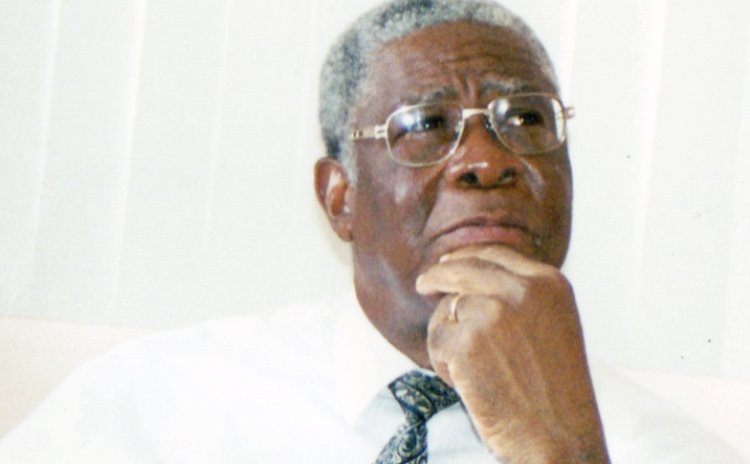The Speaker and the Opposition

The recent Debate on the Bill for an Eastern Caribbean Assets Management Corporation showed remarkable improvement in order and decorum, for which the Speaker and Parliamentarians on both sides of the House are to be highly commended. Whether it was a by-product of the post-"Erika" invitation by the Prime Minister to political unity, sanity and collaboration, or from some other cause, the over-all conduct of the debate was a welcome display of maturity and sophistication unsurpassed in similar Sessions of the last two decades. Rowdyism, overheated exchanges and disregard for the Speaker's directives gave way to prompt and willing submission to her authority and guidance and, on the whole, she was accorded the level of respect that her dignity and status deserved.
There was, however, one unfortunate phase in the Proceedings when a relapse occurred that was unfortunate and for which, in my view, the Speaker was largely responsible. Whether it was because of the fast approaching adjournment for Lunch, or simply because habits die hard, it seemed that, in her attempt to speed up the process, she overstepped her limits. In the course of what seemed to me to be a useful contribution to a very important debate, the Leader of the Opposition was advised by the Speaker that he was nearing the limit of his allotted time, whereupon a motion for extension was given vigorous and vocal "Ayes" from his side of the House and, when the motion was put to the Government side, the "Nays" seemed to match evenly the "Ayes". This caused one of the Members to call for a division and to which the Speaker responded amid laughter "Volume does not mean Numbers".
It was a remark I did not consider at all humorous, but unfortunate because it was unnecessary, and inappropriate because it was irrelevant and, indeed, misguided. For, if I understand correctly the principle that guides Parliamentary debate, a case might arise, and sometimes does, when volume can mean numbers. As I understand it, Members of Parliament are not obliged to vote on every matter along rigid Party lines but, more properly, as wisdom directs, conscience dictates and discretion permits. In a true Democracy, therefore, Party loyalty cannot be deemed paramount, and to suggest that numbers are everything, or that minority must always mean irrelevance are dangerous assumptions for Parliamentary Democracy and should not be entertained. In making that uncalled-for remark the Speaker failed in her impartiality, for once a clear decision could not be discerned in the vocal "Ayes" and "Nays", the call for a division should have been allowed, and that without prevarication.
Furthermore, the Speaker observed, and quite correctly, that the ensuing discussion was eating away at the extension of time that might have benefitted the presentation of the Leader of the Opposition, blissfully unaware that it was her ill-advised intervention that was the initial cause of the deprivation; and, after one minute into the extended time, the presentation of the Leader of the Opposition was abruptly terminated, and without apology.
Vital and weighty issues are at stake in that mishap. If numbers are everything and volume nothing, if volume cannot compensate for lack of numbers, if only the whispers of the majority must be heard because they have the advantage of numbers, then voting in Parliament is superfluous and should be dispensed with.
Parliamentary debates are futile since the outcome is foregone. Parliament itself is a waste of time and the Democratic process becomes a sorry alibi for Government by decree. There is a tendency for Political Parties in this part of the world to give the impression, when they attain or regain power, that an Opposition should not exist, and when an Opposition is vigorous, vocal and alert, they present an intolerable situation for not singing in the Government choir, dancing to the Government beat or echoing the Government's shout. Political Parties afflict themselves with a myopia of insecurity that quite disables them from coping with opposition and appreciating alternatives. With all the education and experience behind them they remain, in that respect, stranded in a kindergarten of their own making. Precisely for that reason those who accept appointment as Speaker must be careful not to be likewise infected.
A Parliamentary Opposition, whatever its limitations, is an indispensable safeguard for a Democracy. Moreover, the provision is strongly entrenched in our Constitution, and when Parliament convenes to do the people's business, under the guidance and direction of a Speaker, members on all sides of the House must be accorded equal recognition without discrimination or reluctance. The temptation to well-timed intervention as a cover-up for interruption and digression must be resisted. The Opposition must be free to ask questions Government would rather not answer, raise issues Government would rather ignore and probe what Government would rather withold. They serve the country when they keep the Government on its toes, on the right track and on the level. For this they must not expect applause; however, if they cannot rely upon the Speaker's encouragement, they are surely entitled to a modicum of respect and fair treatment from the Chair.
Rev. Dr. William W. Watty




